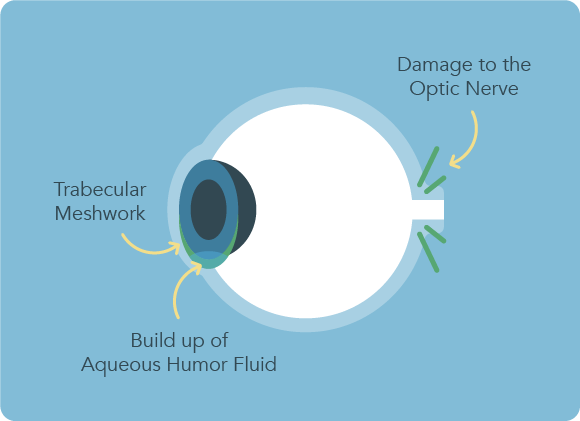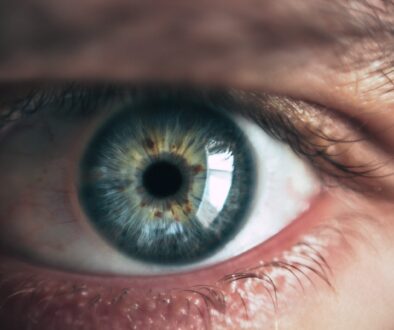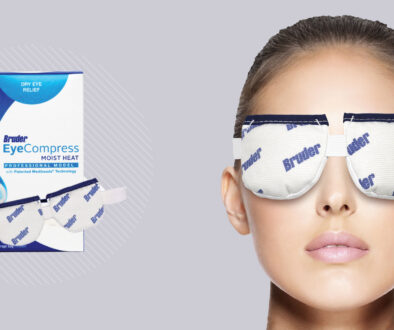Glaucoma Symptoms, Causes and Treatment

Complete Guide about Glaucoma Symptoms Causes and Treatment!
More than 3 million Americans are living with glaucoma, 2.7 million of whom—aged 40 and older—are affected by its most common form, open-angle glaucoma. For people older than 60, glaucoma is one of the leading causes of blindness. Glaucoma can occur without warning, only causing noticeable changes to one’s vision once it is advanced, and vision loss due to the condition cannot be restored. For these reasons, understanding glaucoma—its symptoms, causes, and treatment—is essential for maintaining overall health.
What is Glaucoma?
By definition, glaucoma is an eye disease associated with abnormally high pressure in the eye, which can lead to damage of the optic nerve, often causing blindness. There are multiple types of glaucoma, the two most predominant being open-angle glaucoma and angle-closure glaucoma:
Open-angle glaucoma is the most common form of glaucoma seen in patients. This type of glaucoma develops gradually as the eye slowly loses its ability to drain fluids and a buildup occurs, causing pressure in the eye and damage to the optic nerve. This type of glaucoma is painless, and because it doesn’t cause vision changes at first, it may go untreated until more serious side effects develop.
Angle-closure glaucoma happens when the iris blocks the drainage angle in the eye. When the drainage angle gets completely blocked, eye pressure rises very quickly in what is known as an acute attack. Contact an ophthalmologist immediately if you notice this type of eye pressure, as it can quickly cause blindness.
Symptoms
Symptoms of open-angle glaucoma include:
- Spotty and blurred vision, typically in both eyes
- Tunnel vision
Symptoms of angle-closure glaucoma include:
- Suddenly blurry vision
- Severe eye pain
- Eye redness
- Headaches
- Nausea
- Vomiting
- Seeing halos around lights

If you experience any of these symptoms, it is best to contact your eye doctor as soon as possible.
Vision loss due to glaucoma can be slowed or avoided altogether when the disease is detected in its early stages. This is why the best prevention for glaucoma is regular eye examinations. These exams can identify early signs of damage to the optic nerve—particularly important for those patients whose optic nerves are sensitive to normal eye pressure, meaning their risk of developing glaucoma is higher than average. Other ways to prevent glaucoma include: exercising, being aware of your family health history, using eye protection, and taking prescription eye drops.
Causes
As a person’s optic nerve becomes more damaged over time, their vision will become spotty. This is the result of increased pressure in the eye caused by the compilation of eye fluid, also known as aqueous humor. Aqueous humor is supposed to drain via a specific tissue. However, when there is an excess of this fluid in the eye (either because of overproduction or lack of drainage) it cannot at the appropriate rate, causing eye pressure to go up.
This phenomenon is linked to genetics as certain genes are associated with optic nerve damage and increased eye pressure. In other words, glaucoma can be hereditary.
Glaucoma is most often found in individuals with some or many of the following characteristics:
- Non-Caucasian
- Poor vision (very near-sighted or far-sighted)
- Family member with glaucoma
- Diabetes, sickle cell anemia, heart disease, or high blood pressure
- High eye pressure
- Thinner central corneas
- Experienced an eye injury/injuries
- Had to use prescription eye drops for extended periods of time
Treatment
The objective of glaucoma treatment is to lower eye pressure. This might involve one or a combination of the following (depending on the patient and certain factors): prescription eye drops, oral medications, surgery, laser procedures.
If you have glaucoma, you will likely undergo treatment indefinitely. Without treatment, glaucoma will cause blindness. With treatment, patients are still at risk of experiencing blindness in one or both eyes over time.
Think you might be at risk for glaucoma or simply need to get in for an eye exam? Contact our office today at (318) 703-5655.










